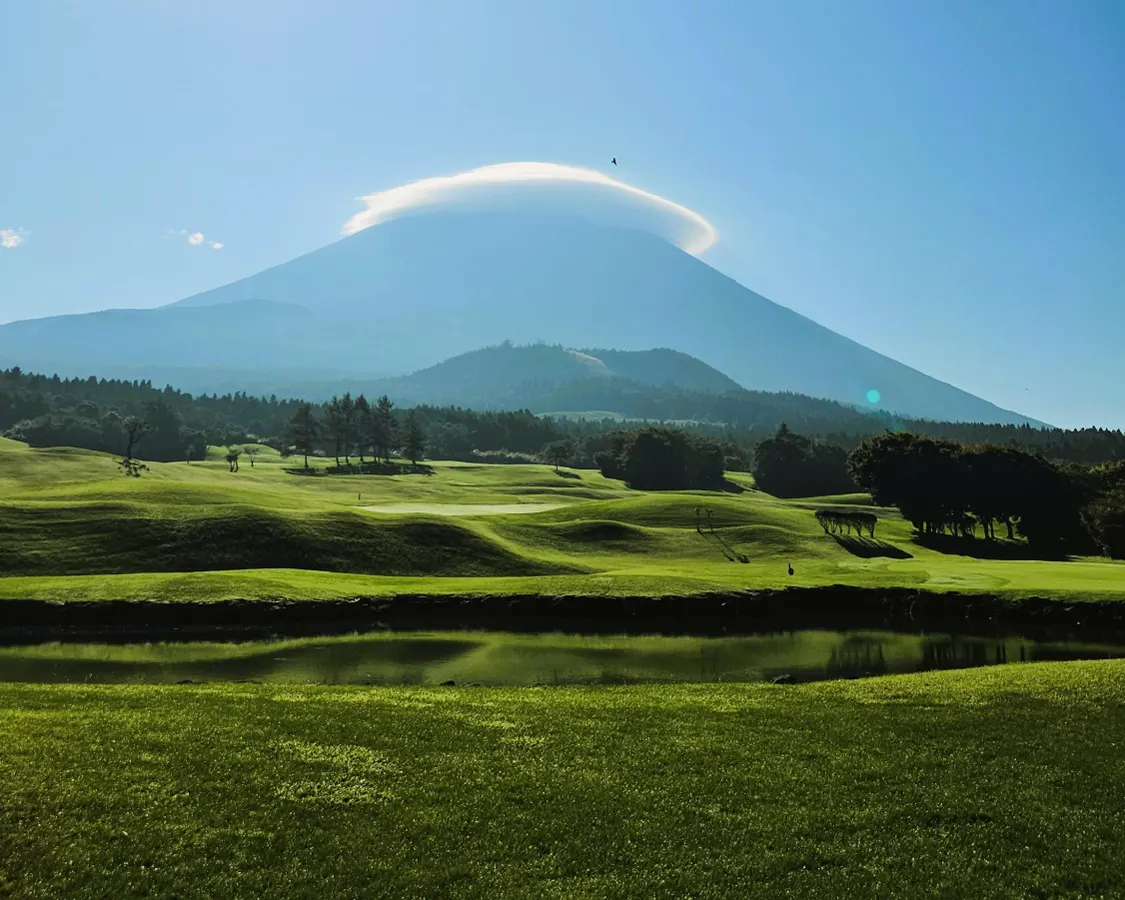Copyright qalampir

The United States’ “partner” in the Middle East has dealt it a slap in the face. A draft law on the annexation of the West Bank could lead to the cancellation of an 80-year-long “marriage contract” between the two countries. Donald Trump has issued a serious warning in this regard. Against the backdrop of Israel’s inhumane ambitions crossing all limits, Donald Trump embarked on a short tour of Asia. During a refueling stop in Qatar, he held a meeting onboard with the country’s Emir and Prime Minister. The United States waited a long time for Russia, but eventually had to use one of its most powerful weapons. “Rosneft” and “Lukoil” have fallen under sanctions. Reports suggest that China and India are being forced to seek new energy sources. Trump’s adviser of Tashkent origin, Sergio Gor, has returned to his hometown. He visited Uzbekistan to discuss various investments, agreements, and the upcoming C5+1 summit. For details on the most important world events of the past week, follow QALAMPIR.UZ’s Weekend program. Will the “marriage” between the US and Israel be annulled? Relations between the United States and Israel have grown tense once again. A strange yet alarming conflict is unfolding between the two sides. On October 22, the Israeli parliament quietly approved a scandalous draft law aimed at de facto annexing the occupied West Bank. Although Prime Minister Netanyahu’s “Likud” party did not support it, the extremist ministers in Tel Aviv clearly share the same stance. The draft was introduced by members of parties outside the ruling coalition and received 25 votes in favor and 24 against out of 120 parliament members. This means that the bill on annexing the West Bank passed its initial reading. Some of Netanyahu’s radical coalition partners — including members of the “Jewish Power” party led by National Security Minister Itamar Ben-Gvir and the “Religious Zionism” faction led by Finance Minister Bezalel Smotrich — supported the bill. However, it must still go through a lengthy legislative process before becoming law. Interestingly, the first of the four stages required by Israeli law to enact such a bill coincided with the visit of US Vice President James David Vance to Israel. The problem is that just a month earlier, President Donald Trump had warned Israel that the United States would not permit the annexation of the West Bank. Such a move would render Trump’s peace plan meaningless, erasing the provision for the creation of an independent Palestinian state — a central goal of the plan. This bill disregards all international laws and agreements, and among those who would lose credibility in this scenario is Trump himself. Therefore, Vance’s October 23 visit made clear the US stance on this legislation. If the White House is not simply playing a role, Vance’s remarks indicate that Trump is firmly opposed to the annexation. Speaking to journalists at Ben Gurion Airport before returning to Washington on October 23, Vice President Vance called the move “a foolish political stunt.” “I personally feel insulted. If this was a political trick, then it was a very foolish one. The US will not allow Israel to annex the West Bank. We are not pleased with this vote,” he said. Vance harshly criticized the bill as an extremely foolish act and an insult to the United States. Soon after his departure, US Secretary of State Marco Rubio also arrived in Israel. Unlike Vance’s unexpected visit, Rubio’s trip came right after the draft bill had passed its first stage. His visit seemed to show that Washington was genuinely shocked by Israel’s decision. Moreover, President Donald Trump himself has paid special attention to the issue. He announced plans to visit the Gaza Strip and chair the “Peace Council,” which plays a key role in resolving Middle Eastern tensions. Although the timing of his visit remains uncertain, what matters is that he issued an unprecedented threat to Israel, warning that if the annexation proceeds, Israel should give up hope for US aid. Trump also reminded Arab nations that he had promised to prevent such an outcome and intended to keep that promise. “This will not happen because I made a promise to Arab countries, and right now this cannot take place. The Arabs are actively supporting us. If it does happen, Israel will lose all support from the United States,” Trump stated. Plans for annexing the West Bank and halting the establishment of a Palestinian state are nothing new. Extremist members of Netanyahu’s coalition have long demanded that Israel formally annex parts of the West Bank. They argue that the territory captured during the 1967 war was not “occupied” but merely “disputed land” under Israeli control. However, the United Nations and nearly all members of the international community consider these territories to be occupied. In 2024, the UN Court declared Israel’s occupation of Palestinian territories, including the West Bank, illegal and called for the withdrawal of settlers as soon as possible. In September, following the recognition of Palestine as an independent state by several Western countries, Netanyahu’s government began discussing annexation as a retaliatory step. However, after Trump’s objections, the plan appeared to have been abandoned. Yet today, it is evident that Trump’s words hold little weight for his “partner” in the Middle East. Even Netanyahu himself emphasized this point, stating that the US stance “does not determine anything” and that Israel “makes its own decisions independently.” Despite Netanyahu’s open defiance, Trump has not yet responded. The political “marriage” between the US and Israel seems to be entering a period of serious discord. The tone of dialogue has changed The same players, the same game. Relations between Trump and Putin have once again grown tense — and it all happened quickly. After their phone conversation on October 16, Trump appeared to show some leniency toward Putin. However, following Ukrainian President Zelensky’s visit to the White House and the October 20 meeting between Rubio and Lavrov, it became clear that Russia’s demands were nothing short of ultimatums. The Kremlin’s insistence on claiming full control over Donetsk continues to obstruct negotiations. As a result, the planned Budapest summit, though not officially canceled, has been postponed indefinitely. On October 22, the US began taking concrete steps to pressure Russia into talks, imposing sanctions on the two major Russian oil companies — “Rosneft” and “Lukoil.” US Treasury Secretary Scott Bessent stated that the sanctions were designed to counter the Kremlin’s war machine, as both companies are key supporters of Russia’s invasion of Ukraine. Trump commented briefly on the new sanctions, saying the US had waited long enough but that “the time had come.” The sanctions affect the Russian branches of “Lukoil” and “Rosneft,” as well as 34 affiliated companies. Any entities with more than 50 percent ownership links to these companies will also be blocked. Violators of these restrictions — whether US citizens or foreigners — could face civil or criminal penalties. Trump described the scale of the sanctions as “very large.” While unsure of their exact impact, he expressed hope that Russia would feel the negative consequences. Putin, however, dismissed such concerns. At a press conference during the 17th Congress of the Russian Geographical Society, he insisted the sanctions would not significantly affect Russia’s economy, describing them instead as an attempt to pressure his country. Putin noted that Russia’s share in the global energy balance remains substantial and reminded that while Russia and Saudi Arabia are exporting more oil, the United States is consuming more of it. He argued that disrupting the current global energy balance would not serve the interests of those trying to do so. He also revealed that he had discussed the impact of Russian oil supplies on global prices — including in the US — with President Trump. In short, Putin tried to demonstrate that Washington’s actions would ultimately harm itself and its Western partners, using various examples to make his point. He has spoken along these lines many times before. Moreover, Putin reminded that during Trump’s first term, the US imposed the highest number of sanctions ever against Russia — suggesting that the situation is under control and nothing unprecedented is happening now. Additionally, Putin’s special representative, Kirill Dmitriev, recently stated in an interview that despite ongoing sanctions, Russia’s economy continues to grow, while Europe’s is stagnating. Over the past few years, he said, Europe’s economy has grown by only 1 percent, compared to over 4 percent in Russia. If we look at official sources, we can be sure that it is true. However, Donald Trump remains confident that these sanctions will have a real impact. In response to Putin’s claim that “the sanctions will not seriously harm Russia,” Trump simply replied, “We’ll see in six months,” effectively closing the discussion. Before long, his move began to prove effective. Major reactions were observed in China and India. Reuters reported that several large Chinese state-owned companies stopped purchasing Russian oil via sea routes following the US sanctions. According to the agency, PetroChina, Sinopec, China National Offshore Oil Corporation (CNOOC), and Zhenhua Oil suspended seaborne imports of Russian crude, at least temporarily, due to concerns about secondary sanctions. It was noted that China imports about 1.4 million barrels of Russian oil per day by sea, mostly purchased by independent refiners, including small operators. According to some reports, Unipec — the trading arm of Sinopec — already halted purchases of Russian oil last week after the US imposed sanctions on Rosneft, Lukoil, “shadow fleet” tankers, and several Chinese firms. Independent Chinese refiners may pause purchases to assess the impact of sanctions, but many traders believe they will still try to continue sourcing from Russia. Currently, about 900,000 barrels of Russian oil per day are supplied to China through pipelines, all managed by PetroChina. According to Reuters, the US sanctions partially affect PetroChina as well. The most troubling possibility for Russia in this situation is that both China and India could turn to alternative suppliers. Reports indicate that soon after the US sanctions were announced, Indian state-owned refineries also began reviewing their oil trade documents with Russia. As a result, Trump’s new restrictions may lead to serious negative consequences for the Kremlin. Meanwhile, the issue of Tomahawk missiles remains unresolved. Trump has not explicitly ruled out supplying these long-range missiles — capable of reaching Moscow and other major Russian cities — to Ukraine. When he last met Zelensky at the White House, he said he “hoped to stop Russia without missiles,” hinting that military escalation could be avoided. Yet, only a few days later, the first step without missiles turned out to be severe sanctions. If these measures fail to produce the desired results, much worse and more dangerous scenarios could soon follow. Thus, after the sanctions, targeting Moscow itself would not be surprising. Trump’s Tashkent-born adviser returns to his “home city” When speaking of the Trump administration, most people think of journalists and billionaires. Indeed, that largely reflects the current composition of the US government. Yet for Uzbekistan, one of the most notable figures in this administration is Sergio Gor — a man born in Tashkent who later moved to the United States. Gor holds significant influence among the high-ranking officials surrounding Trump. There have even been reports of his disputes with Elon Musk, which reflect his strong standing. In fact, when Musk was dismissed from the White House earlier this year, he referred to Gor as a “snake.” On October 25, this very person — Sergio Gor, the US Special Envoy and Ambassador for South and Central Asia — arrived in Uzbekistan, his birthplace, together with US Deputy Secretary of State Christopher Landau. The main purpose of their visit was to discuss trade, investment, and cooperation in the critical sectors of minerals and energy — areas that President Trump currently prioritizes. They also addressed regional cooperation under the C5+1 framework. On October 25, productive discussions were reportedly held between the delegation and Uzbek officials on expanding relations with US companies to a higher level. Sergio Gor has been spending his time in Tashkent meaningfully. On October 26, he familiarized himself with Uzbekistan’s rich history and culture. Photos released by the US Embassy in Tashkent showed Gor and the delegation visiting the Center for Islamic Civilization and the Chorsu Bazaar. They were accompanied by Uzbekistan’s Minister of Foreign Affairs, Bakhtiyor Saidov, and the US Ambassador to Uzbekistan, Jonathan Henick. For reference, Sergio Gor was born on November 30, 1986, in Tashkent, and later continued his education in the United States. Until recently, this information appeared only in insider-focused magazines, but in the past few months, the fact of his Tashkent origins has become public. Gor built his political career within the Republican Party, holding various positions in Donald Trump’s team and becoming one of his closest collaborators. He previously served as Director of the Presidential Personnel Office at the White House and played key roles in several political campaigns. On August 22, 2025, Donald Trump nominated him as the US Ambassador to India. He is currently serving as the Special Envoy for South and Central Asia. As part of his regional tour, Gor is also expected to visit Kazakhstan. His short visit to Central Asia will continue until October 30. Among the key goals of the trip is to discuss future plans under the C5+1 format. A few days earlier, US congressmen had called on Trump to organize a summit marking the 10th anniversary of the C5+1 platform, established in 2015. From this, it can be inferred that Gor’s current visit to Central Asia — and particularly to Uzbekistan — is directly related to these discussions. It is also worth noting that relations between Sergio Gor and Uzbekistan appear to be quite strong. During the 80th session of the UN General Assembly in September this year, when President Shavkat Mirziyoyev met with Donald Trump and signed a $105 billion agreement, Sergio Gor played one of the key roles in the negotiations. Trump embarks on a major tour of Asia On October 25, U.S. President Donald Trump began his first trip to Asia since the start of his second presidential term. During this tour, he is scheduled to visit Malaysia, Japan, and South Korea, and to meet with regional leaders, including Chinese President Xi Jinping. While en route, Trump made a stop at the Al-Udeid Air Base in Qatar to refuel his aircraft, where he met with Qatari Emir Sheikh Tamim bin Hamad Al Thani and Prime Minister Sheikh Mohammed bin Abdulrahman bin Jassim Al Thani aboard the plane. During the portion of the meeting open to the press, both leaders expressed gratitude toward one another. The timing of the encounter, amid Trump’s tight schedule, drew attention. Earlier, the U.S. Vice President and Secretary of State had visited Israel, and this meeting took place immediately afterward. Experts note that several aspects of the Gaza agreement — including Washington’s demand for Hamas to disarm and the proposed deployment of international peacekeeping forces in the region — remain unresolved. Following the meeting, Trump stated that Qatar and other countries’ troops could potentially join the “international stabilization forces” planned for Gaza. “We have 59 countries involved. Many nations are supporting this initiative. It should bring lasting peace,” Trump said. Following the stop in Qatar, Trump flew to Malaysia, where he received an official welcome in Kuala Lumpur. His participation in a traditional dance during the ceremony surprised many — perhaps a sign of his optimism about what lies ahead. Trump traveled to Kuala Lumpur to attend the ASEAN Summit, where he witnessed the signing of a formal peace agreement between Thailand and Cambodia, which had been at war for five days earlier this summer. The signing took place in the presence of both countries’ prime ministers, as well as Malaysian Prime Minister Anwar Ibrahim. In his speech at the ceremony, Trump praised his own ability to mediate peace agreements, recalling that the Thailand–Cambodia conflict was “one of the first wars” he had personally helped resolve. “I enjoy doing this. I like it… Maybe I shouldn’t call it a hobby because it’s much more serious than that, but it’s something I know well and something I like to do. The United Nations should be doing this, but they don’t,” Trump said. The deadly border conflict between Thailand and Cambodia, which began in July, is among several “unfinished wars” that Trump now claims to have ended. The initial ceasefire was reached on July 28 after the U.S. president warned both sides in phone calls that the United States would not sign trade deals with either country if the fighting continued.



